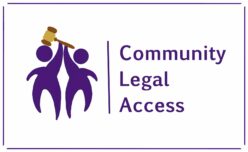“Equal justice under law is not merely a caption on the facade of the Supreme Court building; it is perhaps the most inspiring ideal of our society. It is one of the ends for which our entire legal system exists. It is fundamental that justice should be the same, in substance and availability, without regard to economic status.”
– Justice Lewis Powell, Jr.
America’s civil legal system provides us with the opportunity to seek and obtain justice when our rights have been violated and a forum for redress when we have been wronged.
The term “access to justice” describes the ability of any person, regardless of income, to use the legal system to advocate for themselves and their interests.
We rely on the civil legal system to address important problems like wrongful foreclosure, domestic violence, divorce, discrimination, bankruptcy, and many other critical legal issues. While the civil legal system can be a powerful tool for remedying wrongs, it is also extremely complex and can be difficult to navigate without the help of a trained attorney. For those unable to afford an attorney, access to the court system and the justice it can provide are limited.
Lack of access to an attorney is not the only access to justice issue facing low-income individuals and families. For those who choose to represent themselves, court costs and filing fees can be a barrier to obtaining justice. It can also be difficult to find information on simple procedural issues, like when and where to file a lawsuit and what rights you have in court. That is why CLA started the Modest Means Panel.
To learn more about the Modest Means Panel go to “Modest Means Panel of Attorneys” tab. If you would like to donate to support the Panel please visit the Donate page.
Without equal access to the justice system, many low-income Americans struggle with legal problems that negatively affect their livelihood, their health, their housing and marital status, and their children and families. If we do not ensure that those in poverty have access to the judicial system, they become disenfranchised and a target for the unscrupulous.
